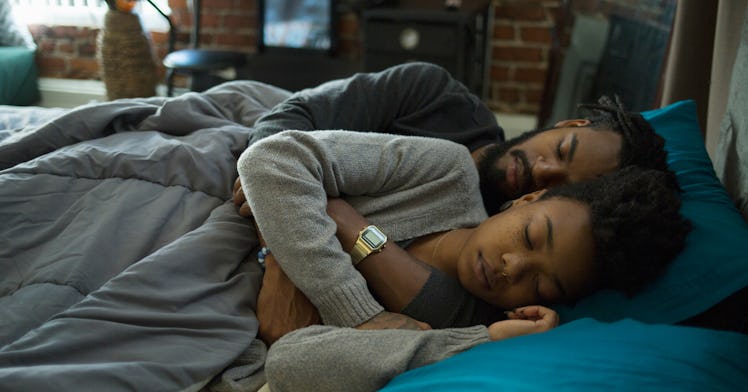Getting More Deep Sleep Could Help Prevent Alzheimer’s
A new study offers some bad news for sleep-deprived parents.

Parents, especially new parents, are notoriously sleep-deprived. One study found that parents of newborns can’t expect to get a decent night’s sleep until their kid turns 6. That’s a lot of lost hours in dreamland. And while sanity might be a mom or dad’s primary motivation for catching up on shuteye, a new study suggests that sleep might even be more important than getting through a day without cracking up. In fact, one study found that consistent, deep sleep could help prevent Alzheimer’s disease. More specifically, deep sleep might help reduce levels of beta-amyloid and tau, two brain waste products that increase the risk of the disease.
Walker and his team studied 32 septuagenarians, running brain scans to monitor the levels of beta-amyloid in each one for up to six years. People who got less deep sleep had more beta-amyloid, they found. Other studies have found a similar association between a lack of deep sleep and higher levels of the protein tau in the brain.
“We are now learning that there is a significant relationship between sleep and dementia, particularly Alzheimer’s disease,” Matthew Walker, a professor of neuroscience and psychology at the University of California, Berkeley, told NPR. “There is something about this deep sleep that is helping protect you.”
The working theory, which dates back to a 2013 study, is that deep sleep activates a “dishwasher” in the brain: waves of fluid that flow into the brain during sleep that remove things like beta-amyloid and are preceded by large, slow electrical waves. This “dishwasher” helps clean out your brain every night — and going without it could be disastrous, apparently. Naturally, scientists are now focused on figuring out ways to induce such waves in the hopes without deep sleep, so that they can purposefully activate the processes that “clean” the brain and make dementia less likely.
The news likely won’t help parents get more sleep. After all, squeezing more time out of the day is mostly just about cutting smaller pieces in a pie. And sometimes, sleep just can’t be found — whether a kid is sick or whether a parent is having their first baby jitters, constantly checking the baby monitor. But the study is a sobering reminder that sleepless nights have real consequences.
This article was originally published on